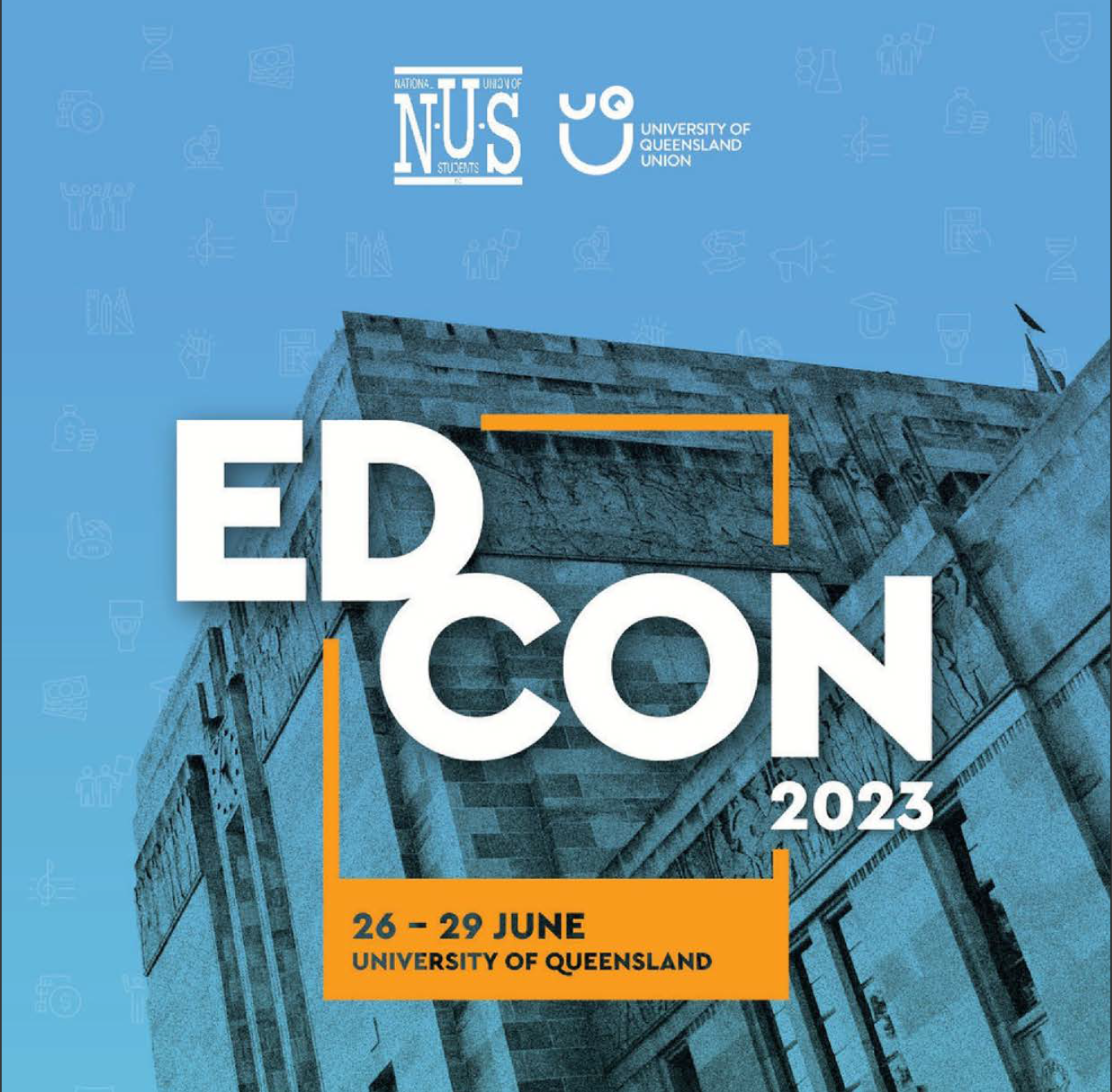 Here’s a recap of the first day of Edcon.
Here’s a recap of the first day of Edcon.
University Accords
First up was a plenary discussion which centred around the University Accords project. It is the centrepiece of the Albanese government’s higher education policy, and the object of the current higher education review. Edcon was addressed by Mary O’Kane, the chair of the universities accord panel. Her presence was not received well by SAlt.
A panel discussed the topic, consisting of Bailey Riley- NUS President (NLS), Sheldon Gait- General Secretary (Unity), and Xavier Dupe- Education officer (SAlt).
Bailey Riley and NLS committed to engaging in the Accords process: “If you’re not at the table, you’re on the menu.”
They were disrupted by SAlt members from the audience, with one member yelling, “you’re helping bosses!” SAlt agitated for the NUS to withdraw from the Accords process. “Where students have their weight is in their numbers, out on the street. It’s (The Accords) a concession, it’s right wing, it’s completely f—d,” one SAlt member said. Xavier Dupe claimed that the purpose of Accords process is to find new ways to exploit students and graduates. He tells Bailey Riley and the NUS to exit the Accords process.
Sheldon Gait and Unity supported continuing NUS involvement, with the note that students can both sit at the table and march outside the building.
Reppin the Regions
I also attended a session called ‘reppin the regions’ run by two UOW representatives: Tiana Myers a union official, and Ela Akyol, the president of WUSA. The session revolved around student activism in the regional context.
They talked about the issues that face regional students, using UOW as an example. These included the lack of public transport, limited access to jobs after graduation, and limited Psychology and mental health services and healthcare in the region.
They also discussed the complicated relationship between student advocacy and local carbon-emitting industry. Port Kembla was a case that illustrated how some communities are built on economic and cultural ties to carbon emitting industries, and how this complicates activism efforts related to climate change.
The challenges for POC were discussed in a predominantly white regional context. Ela spoke on how it can be difficult for migrants and POC to find community, financial security, and interpersonal relationships. This tied in with the issues facing international students, including loneliness, financial hardship, and employment opportunities.
AUKUS plenary
The last plenary was a debate about AUKUS. The speakers all opposed AUKUS. They were Tom Bramble (retired socialist activist), Deaglan Godwin (Socialist Alternative), and Eric Seychell (National Labor Students).
Bramble stated, “China poses no threat to Australia.” The only threat posed to him is of successive Australian governments antagonising China. “Millions in China may die as Australia and the US attack Chinese cities… It will make the Vietnam War look like child’s play.”
Eric stated Labor members should oppose AUKUS because, “We want investment in health and education and all of the things that help Australian’s lives.” He raises imagery of nuclear war, mentioning Hiroshima, stating it’s not worth it to “appease the US.”
Deaglan said, “The left in the NUS should fight for the NUS to entirely oppose to the AUKUS deal.” Vietnam war is mentioned again as a comparable precedent to student activism against war.
“We are talking about Beijing, Shangai, Sydney and Melbourne being nuked. China doesn’t give a f– about Australia except for its choice to be an aggressor in the Pacific… millions of deaths.” An SA member said, summing up their faction’s view on AUKUS. An NLS member approved of this take.
A speaker for Unity attempted to draw a distinction between a nuclear submarine and a nuclear-powered submarine. This was met with heckling from the crowd. He said there are better things to fight about, and we can’t afford to keep pulling out of deals.
A Grassroots member said that AUKUS could be used as justification for further education cuts and more predatory student internships. He urges NLS and Unity to adopt a no-AUKUS stance. Sheldon Gait (Unity) said, “the best offence you can have is a good defense… These are the best tools for the job.”
A lengthy motion for the NUS to categorically oppose AUKUS was put up for debate. It was supported by everyone except Unity, who ended up walking out.



